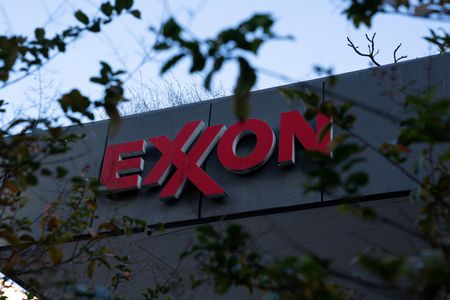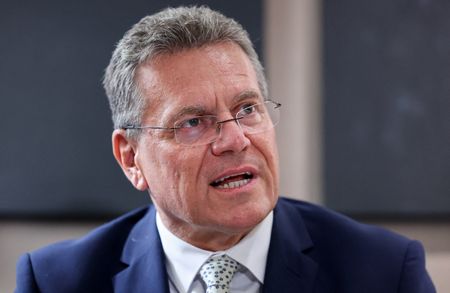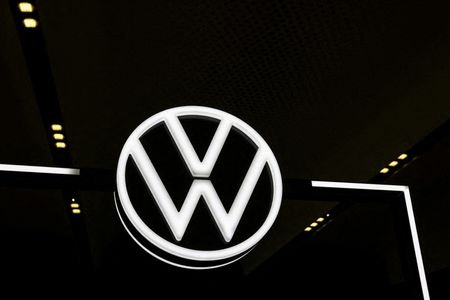By James Davey and Raechel Thankam Job
(Reuters) -Shares in British online supermarket and technology group Ocado slumped on Tuesday after U.S. partner Kroger said it would close three automated warehouses in January, dealing a heavy blow to the Ocado investment story.
Ocado stock closed down 17.4% as the group also said its fee revenue would fall by about $50 million next year as a result of the closures, extending 2025 losses for the shares to 40.5%.
The group had a stock market value of 21.7 billion pounds ($28.5 billion) during the COVID pandemic in 2020, briefly overtaking UK industry leader Tesco, but is now valued at less than 2 billion pounds.
KROGER HAD SIGNALLED RETREAT FROM AUTOMATED WAREHOUSES
Kroger, which in September signalled a potential retreat from investment in automated warehouses, said it had decided to close the sites because they had not met financial expectations.
It plans instead to boost its presence in quick grocery delivery through expanded relationships with delivery firms Instacart, DoorDash and Uber Eats.
Shore Capital analyst Clive Black, a long-time Ocado sceptic, said Kroger’s move was “a devastating blow to the credibility of the Ocado Group proposition”.
He said that while Ocado’s model may work financially in densely populated and affluent urban locations, capital-intensive, centralised fulfilment of multi-temperature foodstuffs to a dispersed customer set does not.
“That means Ocado’s previously spoken total addressable market has been blitzed,” he added.
Bernstein analyst William Woods said he struggled to see Ocado securing further major U.S. partnerships.
In July, Ocado CEO Tim Steiner told Reuters the U.S. was “an enormous ongoing opportunity” for the group.
Ocado has 12 other international partners, including Aeon in Japan and Lotte Shopping in South Korea.
INITIAL KROGER DEAL STRUCK IN 2018
Ocado struck a deal with Kroger in 2018 to help the U.S. retailer develop its grocery delivery business.
The initial agreement saw Kroger identify 20 U.S. sites to build robotic warehouses, or customer fulfilment centres (CFCs) as Ocado calls them, making the group Ocado’s most important partner.
However, so far, only eight sites have gone live and three are now slated for closure – at Frederick in Maryland, Pleasant Prairie in Wisconsin and Groveland in Florida.
Ocado and Kroger would continue to operate the remaining five sites, with Kroger monitoring their progress.
“Ocado continues to support Kroger to optimise logistics operations and drive profitable volume growth in these remaining sites, with constructive ongoing discussions around further use of Ocado’s technology to support Kroger,” Ocado said in a statement.
Bernstein’s Woods said he expected Kroger also to cancel the two CFCs that were scheduled to open next year in Charlotte and Phoenix.
Ocado said it expected more than $250 million in compensation from Kroger for fees related to the early closure of the three sites.
Kroger said it would record an impairment charge of about $2.6 billion in its third quarter and forecast it would improve e-commerce profitability by about $400 million in its fiscal year 2026.
($1 = 0.7611 pounds)
(Reporting by James Davey in London and Raechel Thankam Job in Bengaluru. Editing by Paul Sandle and Mark Potter)










